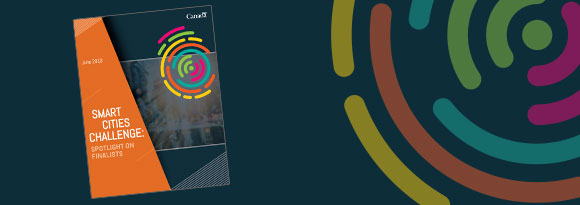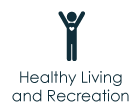Nunavut Communities, Nunavut
This page has been archived on the Web
Information identified as archived is provided for reference, research or recordkeeping purposes. It is not subject to the Government of Canada Web Standards and has not been altered or updated since it was archived.
The first round of the Smart Cities Challenge is closed. The Government of Canada announced the four winners (City of Montréal, Québec; Nunavut Communities, Nunavut; City of Guelph and County of Wellington, Ontario; and Town of Bridgewater, Nova Scotia) on May 14, 2019.

Executive Summary
- PDF Version (370.90 KB)
- HTML Version
- PDF Version (103.02 KB) (Inuktitut)
"In the last year, we have piloted this project and know it builds resilience, capacity, and creates community around wellness, and how tech can be used to support that"
– finalist video
"We present this project as a way to provide the tools to enable youth to unlock modes of expression, economic opportunities and [an] emotional outlet."
– finalist video
- Watch the finalist's proposal video
- Read the finalist's full proposal (English)
- Read the finalist's full proposal (Inuktitut)
Challenge Statement
Our communities will implement protective and preventative measures to reduce the risk of suicide in Nunavut, which is ten times the national average, and increase the amount and accessibility of peer support networks, educational resources and creative outlets that promote positive Mental Health to all Nunavummiut.
Summary
The Community, Connectivity, and Digital Access for Suicide Prevention in Nunavut is a collaborative effort to implement protective and preventive measures to reduce the risk of suicide in Nunavut through a decentralized and community-based digital health and wellness platform.
This platform will leverage digital access and connectivity to increase the availability and accessibility of mental health resources and support systems like peer to peer networks, educational initiatives, and creative outlets to all Nunavummiut. This includes an Inuktitut based digital literacy curriculum, improved and innovative network infrastructure, mobile applications, gamified interventions, digital art therapy, and permanent makerspaces available in each community.
This platform will rely heavily on community leadership and participation, and is based on Inuit Qaujimajatuqangit, the Inuit knowledge system and worldview, to provide the foundations upon which social, emotional, spiritual, cognitive, and physical well-being define health and wellness. It will provide Inuit youth with contemporary forms to engage with their heritage, reinforce Inuit language and enable cultural continuity through the use of technology. This is a transformative opportunity to incorporate a framework of cultural safety and trauma-informed care toward suicide prevention that is responsive to community needs.

Spotlight on Finalists:
Nunavut Communities, Nunavut
Population: 35,944
Focus Areas:


Prize Category:

#smartcitiesCanada
The Jury's Perspective
Read the transcript
My name is Kaviq Kaluraq. I'm originally from Baker Lake, Nunavut. I currently live in Iqaluit. I'm an instructor at Arctic College. I'm also a board member for the Nunavut Impact Review Board.
Well, in my board work in Nunavut, I'm involved in environmental impact assessment, so the opportunity to be involved in something that's different and nationwide was exciting: something that would involve communities and their aspirations.
I've heard, for a very long time, that mental health has been a concern for Nunavummiut and the application of smart technology and the issues that communities face on something that they've been wanting to address and how they've tied it together made it inspiring.
Nunavut Communities, Nunavut - Inuktitut
Read the transcript
My name is Kaviq Kaluraq. I'm originally from Baker Lake, Nunavut. I currently live in Iqaluit. I'm an instructor at Arctic College. I'm also a board member for the Nunavut Impact Review Board.
Well, in my board work in Nunavut, I'm involved in environmental impact assessment, so the opportunity to be involved in something that's different and nationwide was exciting: something that would involve communities and their aspirations.
I've heard, for a very long time, that mental health has been a concern for Nunavummiut and the application of smart technology and the issues that communities face on something that they've been wanting to address and how they've tied it together made it inspiring.
The Finalist's Perspective
Read the transcript
[On screen: Smart Cities Challenge]
The smart cities challenge is a competition that called in Canadian communities to explore how data and connected technology can achieve meaningful outcomes for residence.
[On screen: The finalists $10M category - Nunavut Communities, Nunavut]
[On screen: Tell us about your team and your community]
Adam Akpik ($10M, Project development Coordinator, Embrace Life Council): yeah, so we're part of a collaboration of organizations. So, there's the Nunavut association of municipalities, Bingwok, the health research center and embrace life council. We've submitted the proposal on behalf of the 25 municipalities of Nunavut to create spaces for youth to be creative, to learn new skills and for a safe and nurturing environment.
[On screen: Why did you enter the challenge?] Taha Tabish ($10M, Health Technology Innovations Research Coordinator, Quajigiartiit Health Research Centre): we entered the smart cities challenge as way to address gaps in tech, in tech education and access to tech and how that fits in its role in health and wellness. There's an opportunity to create innovative spaces, to create or make spaces where you have you know you can have young people to learn and grow and sort of use that as a way to build health and build wellness and sort of you know develop products tech or non-tech based products like a benefit or communities. So, it's all about sort of empowerment of communities, it's about addressing the digital gap and the digital divide and about just you know having a cool space in town to for young people to go and to hangout and to learn.
[On screen: Challenge statement: Our communities will implement protective and preventative measures to reduce the risk of suicide in Nunavut, which is ten times the national average, and increase the amount and accessibility of peer support networks, educational resources and creative outlets that promote positive Mental Health to all Nunavummiut.]
[On screen: Join the conversation: #smartcitiesCanada]
Infrastructure Canada
- Date modified: